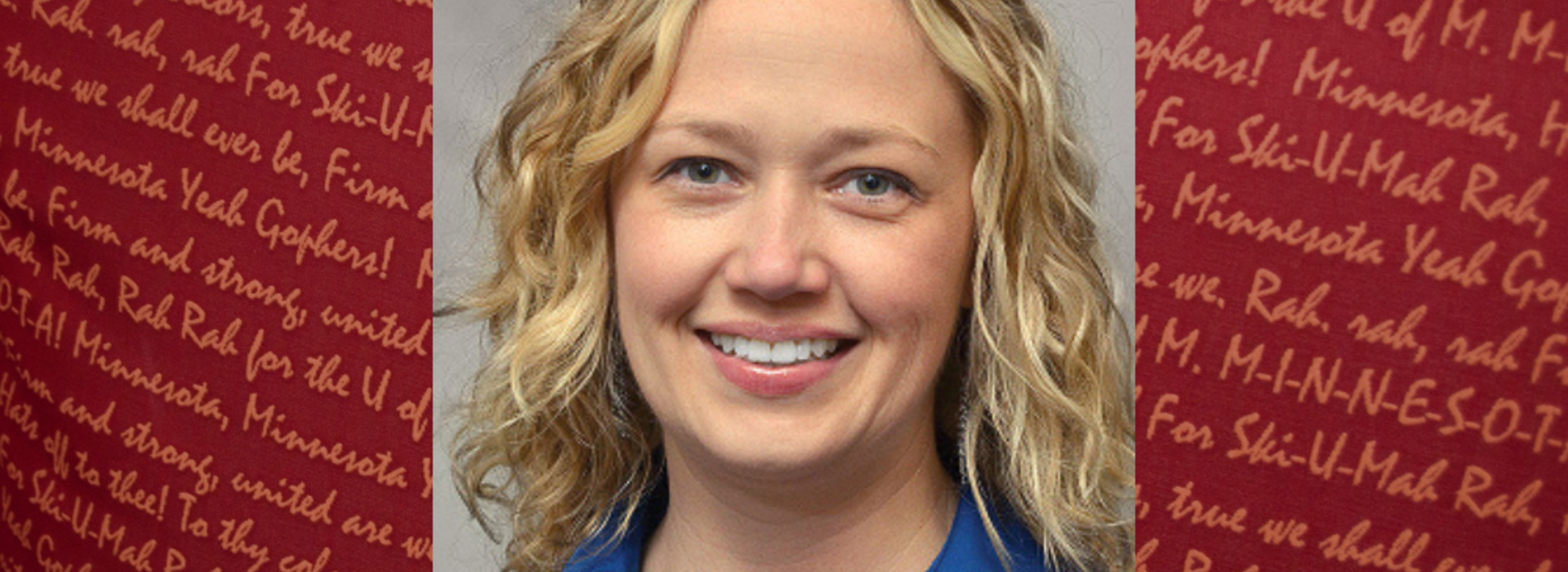
Dr. Sarah Elfering Shares Passion for Nephrology with her Students
Dr. Sarah Elfering Shares Passion for Nephrology with her Students
After graduating from the University of Minnesota Medical School in '06, Dr. Elfering discovered a passion for medical education
When Dr. Sarah Elfering (‘06) began her medical school journey at the University of Minnesota Medical School, she could never have predicted where her career would take her. Led by the pursuit of her interest in solving complex problems, Dr. Elfering followed her gut throughout her education and discovered a fulfilling career as both a medical educator and practicing nephrologist, caring for patients with kidney diseases.
“I found the most joy in medicine figuring out how to help patients with complicated diseases,” Dr. Elfering recalls. “So when I was doing my clinical rotations, I was inspired by many people in my training who taught me a lot about the various aspects of nephrology.”
The kidneys have a number of important functions in the body, including handling waste, controlling fluid levels, maintaining acid levels and managing electrolytes. For Dr. Elfering, exploring and understanding the underlying complexities of kidney disease and its effects on the body is exciting.
“There’s a lot of investigative work and problem solving that comes with being a nephrologist, which I really enjoy,” she says.
Along with her enjoyment of clinical work, Dr. Elfering discovered a passion for medical education during her fellowship at the University of Minnesota.
“I was very fortunate when I graduated from my fellowship to be offered a position here at the university,” she explains. “As I started in my position, it became more and more clear to me that medical education was something that I wanted to focus on.”
Today, Dr. Elfering is an assistant professor and program director of the nephrology fellowship. Her favorite part of teaching is the students’ inquisitive natures and knack for asking questions she’s never considered before.
“I hear from my colleagues over and over again when working with students, ‘I never thought of that question!’” she laughs. “They’re such an inquisitive group of people, and it’s fun to be challenged by them because they make us better.”
As both a clinician and educator, Dr. Elfering is in a unique position to mentor students as they progress through their training and determine their interests. Her best advice? Get lots of experience, and don’t be afraid of nephrology.
“A lot of people get worried about nephrology because it is so complicated,” Dr. Elfering explains. “But mentors can show you how it can be fun! Many people with various interests could certainly find something that they love in nephrology. There are opportunities to specialize in various areas of nephrology, for example, where it overlaps with critical care, oncology and rheumatology. I think that’s what makes it a great career.”
Looking to the future, Dr. Elfering sees a transformation in nephrology training that moves from time-based to competency-based fellowships, assessing a fellow’s competence rather than simply assuming everyone is ready to move on after two years of training.
“It’s really important to provide fellows the opportunity to develop expertise in an area that aligns with the career they want,” she says. “I’m interested in how we are going to make our program better and help fellows in training develop the skills that are really going to fit with their goals for their career.